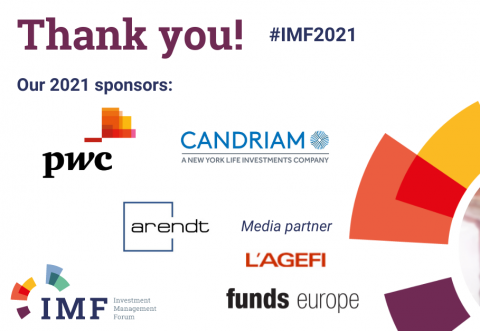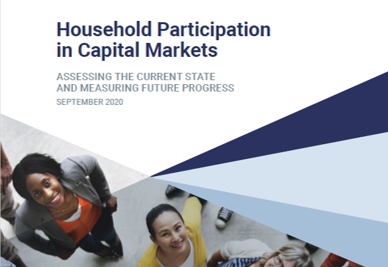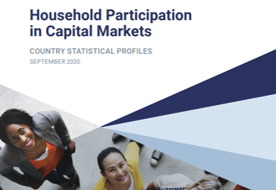EFAMA supports the European Commission's initiative to establish the European Single Access Point. We see it as a unique opportunity for the Capital Markets Union to centralise all publicly available ESG and financial transparency information data in one place.
Capital Markets Union
Building a Capital Markets Union (CMU) serving the needs of European citizens and businesses is as ambitious as it is essential: the effort will enable pensioners and savers to share in the upside of Europe’s economic recovery. In the process, European capital markets also become more efficient and better integrated. This long-term vision is key to financing European innovation and to supporting the transition towards a more sustainable economy.
Increasing retail investors’ participation in capital markets is an essential component for building an effective CMU. Improving access to financial and non-financial information and addressing the high data costs our industry is encountering, are also important steps towards a functioning CMU. All this, while maintaining and improving the attractiveness of the European investment management sector in today's global environment.
EFAMA prepared a list of key actions that are required to reach the CMU objectives from an investor perspective. We have also developed a specific Key Performance Indicator to measure year-on-year progress towards increasing retail participation in capital markets in each member state.
EFAMA response to Commission consultation on establishment of European Single Access Point (ESAP)
Key objectives for the creation of a Capital Markets Union - EFAMA letter to EU Commissioner McGuinness
We fully support the ambitions of the new CMU Action Plan. Properly executed, it has the potential to boost the fortunes of Europe’s pensioners and savers by creating opportunities for them to share in the upside of Europe’s economic recovery and to create more efficient and better integrated European capital markets, which is key to finance European innovation as well as the transition towards a more sustainable and digital economy.
Priorities for the investment management industry - EFAMA letter to Portuguese Presidency of the EU
The European investment management industry is helping savers achieve their financial goals and build up retirement savings. Investment management is a vital part of the European economy, providing funding for companies and infrastructure projects and contributing to economic growth and job creation across all Member States.
Annual European Asset Management Report - Report highlights key developments in the European fund industry
The European Fund and Asset Management Association (EFAMA) has released the 13th edition of its Asset Management in Europe report, which provides in-depth analysis of recent trends in the European asset management industry, focussing on where investment funds and discretionary mandates are managed in Europe.
IMF 2021: Thought-provoking discussions and insightful presentations
This year’s Investment Management Forum featured an incredible number of high-level speakers and thought-provoking discussions.
.png)
EFAMA welcomes proposal on affordable consolidated tape - The association continues to urge action on market data costs
EFAMA is pleased to read today the details of a robust MiFIR proposal from the European Commission addressing key areas of reform around the creation of a consolidated tape (CT), along with adjustments to transparency requirements on trading.
Household Participation in Capital Markets
This publication precedes the European Commission's forthcoming new Action Plan on the Capital Markets Union (CMU). It includes ten concrete policy recommendations to help advance the CMU, including the introduction of a Key Performance Indicator (KPI) to monitor progress in household participation in capital markets.

































